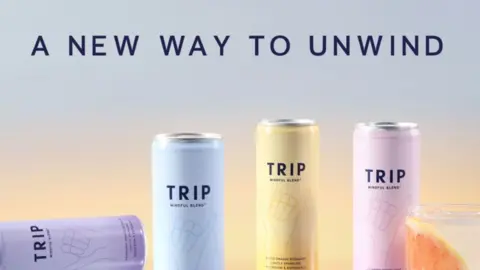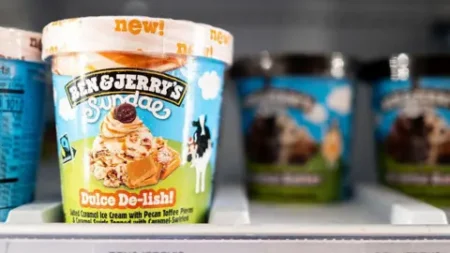In recent news, an advertisement by Trip Drinks has come under scrutiny and has ultimately been banned due to its unauthorized health claims. The advertisement suggested that the beverage could “help you feel calm,” alongside claims that it could alleviate stress and anxiety. These assertions were deemed misleading and inconsistent with advertising regulations concerning food and drink products, as confirmed by the Advertising Standards Authority (ASA) following an investigation.
The Trip drink, which features a blend of cucumber, mint, and magnesium, advertises itself as a product that utilizes ingredients aimed at promoting relaxation. However, the ASA found that the claims made in the advertisement lacked sufficient backing in accordance with marketing regulations for health benefits associated with such drinks. As a result of the investigation, Trip has stated that it would remove the disputed claims while anticipating expert feedback, with hopes of potentially using similar claims in the future, pending proper substantiation.
As a brand, Trip is tapping into the thriving market for non-alcoholic beverages, gaining traction particularly on social media platforms. The company has confidently branded itself as “the UK’s No.1 CBD brand.” Cannabidiol (CBD), an extract from the cannabis plant, is often promoted for its relaxing properties, distinguishing it from other compounds that can induce a “high.” The burgeoning interest in CBD-infused drinks reflects a growing consumer desire for alternatives that promote wellness without the effects of alcohol.
The ASA’s investigation was prompted by three complaints regarding Trip’s advertising practices for its cucumber and mint-flavored drink, which had been showcased on its website in a campaign launched in December. In the advertisement, phrases like “Try me in the morning to help find some calm before a long day, or take a Trip to unwind when work is over” raised red flags. The ASA determined that the company’s assertions about its “Mindful Blend” product line, which included purportedly calming ingredients such as Lion’s Mane extract, L-theanine, and ashwagandha, were misleading to consumers.
Further complicating the situation, the ASA highlighted specific phrases used in the advertisement, such as “crafted for calm” and “simply help you feel calm,” which suggested to consumers that the drinks could effectively reduce anxiety. This was interpreted as a direct violation of guidelines outlined in the Great Britain nutrition and health claims register, which delineates permissible health claims in advertising for food and supplements.
Additionally, Trip’s advertisement implied that the magnesium included in its drink could lower serum cortisol levels—a substance often referred to as the stress hormone—further violating regulations set forth by the ASA. The investigation also brought to light inaccuracies concerning the claim of “0g added sugar” present in the drink, indicating another breach of advertising standards.
In its ruling, the ASA enforced that the advertisement should not be aired again in its original form. Furthermore, the authority instructed Trip to refrain from making any claims regarding the prevention, treatment, or cure of any diseases in future advertising endeavors. This marks a significant step in regulating how health-related claims are communicated in the food and beverage industry, particularly as competition grows in the non-alcoholic sector.
The case of Trip Drinks serves as a critical reminder for companies entering the wellness and beverage market to carefully consider the implications of their advertising claims, ensuring they remain transparent and compliant with established regulations. As consumer interest in health and wellness continues to rise, maintaining integrity in marketing practices will be paramount for long-term success.











